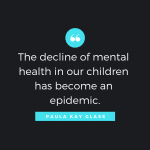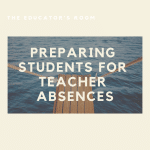Why Every Great Teacher Needs a Hobby
Have you signed up for The Educator’s Room Daily Newsletter? Click here and support independent journalism!
Nothing makes me feel like I have accomplished less in my 40+ years than giving my high school students a brief biography of Mark Twain’s life. When I realize just how much he had accomplished by the time he was my age, I want to crawl under a blanket and stay there for a couple of days while I consider my life choices.
Yes, I love my career. I have chosen a rewarding vocation where I am influencing the futures of countless teenagers. But I’m also a human being who loves to create and would love to someday see my name on a book in a bookstore. I’m sure that I’m not the only educator who has heard a non-educator proclaim, “Those who can’t do, teach.” I always want to respond, “I can do both.” I can write and nurture a future generation of writers at the same time.
Realizing that I could and should do both transformed me personally and as a teacher.
You can teach and create at the same time
I first started believing that I could pursue writing when I took a graduate-level course for my first teacher re-certification. I started a novel that totaled a whopping 1000 words, and no, I’ll probably never return to it. But by the time I finished graduate school and returned to the high school classroom, the assigned reading and writing became a gateway into blogging on my own. I also found that the more I wrote for myself, the more mentally prepared I was for my classroom.
Here is one thing that they don’t tell you in education classes: You are more than a teacher, and you are more than your job. You are allowed to have interests outside of the four walls of your classroom. In fact, doing so makes you a better teacher. When you do creative work within your discipline (writing, art, photography, music, drama, etc.), it provides you with real-world application to give your students. I have shown students drafts of my articles that have been marked up, changed, and commented on by editors eager to show me how to write better. Students have been shocked to see that their teacher not only writes, but has to go through the same process I make them go through every time I want to be published. I love showing them that my craft extends beyond my classroom walls.
We are more than “just” teachers
Who we are outside of the classroom helps to humanize us inside of the classroom. For example, a teacher who tinkers with her own classic car project can shatter automotive-related gender stereotypes. A teacher who gets the lead in a community theater production can show his students that you don’t have to stop doing what you love just because other vocations attract their attention.
No matter how good we are at teaching or how much we love our jobs, changes are bound to happen for a variety of reasons. As a child, I watched my father, a teacher, use woodworking as a creative outlet. Eventually, when the time came, he used those woodworking skills to find jobs outside of teaching. I have English teacher friends who have left the classroom and have used their writing and editing skills to work as copywriters. I have a quilting friend who left the classroom to stay at home with her children and turned her sewing skills into a successful quilting business.
Our creativity gets used…for our students
As someone who journaled and wrote letters all through middle school and high school, I believed that writing as an adult would be easy. I quickly discovered that it was not. It wasn’t just that I didn’t have much time for fun; teaching sucked all of my creative energy dry. If I had a spark of any kind, my job stole it.
I spent the first eight years of my teaching career using my creative energy as the theater director. I worked with colleagues and parents to plan productions that challenged me as well as my students. Later, I picked up duties as a yearbook advisor, putting together my love for writing and photography. The work required practically all of my creative energy, however. I spent essentially twelve months out of the year producing our high school yearbook.
I loved the creative work I was doing with my students, but I felt like something was missing.
Don’t feel guilty about finding a hobby that makes you happy
It took a long time to get there, but I finally learned that my creative pursuits, which include writing and podcasting, have made me a better teacher. I can say the same for many of my friends who have survived in education into middle age.
I have a friend who does freelance art on the side. I have another friend who creates beautiful quilts. I have yet another friend who reports on fantasy football and has even earned thousands of Twitter followers in the process. I know several English teachers who blog or publish writing on the side. I know teachers and professors of different disciplines who participate in community theaters, orchestras, and choirs. In a world full of hobbies, the options are endless.
For tired and overworked teachers in toxic situations, the suggestion that they look for creative outlets for their energy probably sounds crazy at best, critical at worst. It sounds like the kind of toxic positivity that encourages teachers to seek self-care while piling on emotional and physical labor that makes that self-care nearly impossible. We all know that there are significant reforms necessary in education; teachers shouldn’t feel guilty about leaving the work at school so that they can be their full selves at home.
So buy that project car, stock up on lumber, start a blog or a podcast, or spend your weekends hiking and taking photographs. Doing so might actually make you a more productive teacher in the classroom.
Editor’s Note: If you enjoyed this article, please become a Patreon supporter by clicking here.







